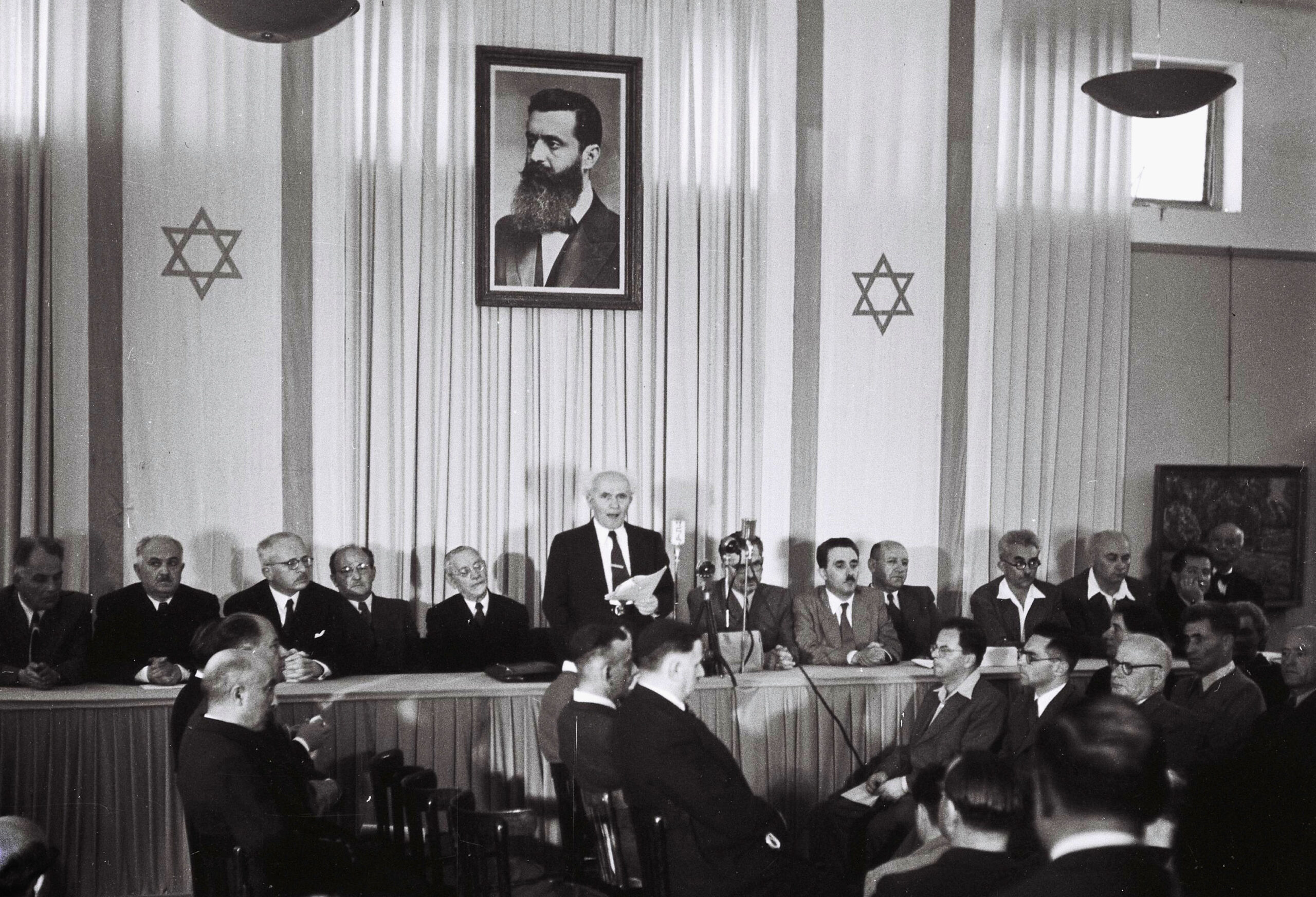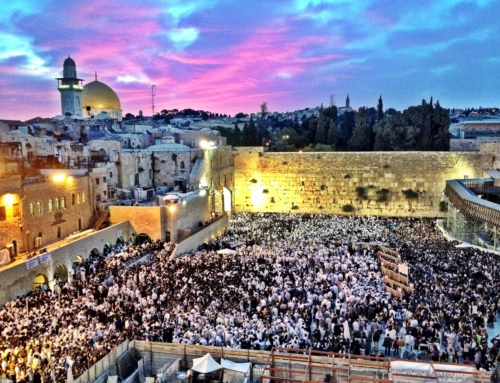Independence Day
This April, 75 years ago, Israel’s first Prime Minister David Ben Gurion proclaimed the independence of the State of Israel. Independence Day in Israel is intimately connected with Memorial Day for fallen soldiers and with Holocaust Remembrance Day.

Israel’s first Prime Minister David Ben Gurion proclaims the independence of the State of Israel on May 14, 1948. Photo: GPO
Independence Day, called Yom Haatzmaut in Hebrew, is celebrated this year from the evening of Tuesday April 25 to the evening of Wednesday April 26. 26 April in the Gregorian calendar corresponds to 5 Iyar in the Jewish calendar. In 1948, 5 Iyar fell on 14 May.
Israel’s first Prime Minister David Ben Gurion proclaimed the independence of the State of Israel eight hours before the end of the British Mandate of Palestine on May 15, 1948. The declaration referred to the natural and historic right of the Jewish people to the land and to the UN General Assembly resolution of November 1947. The new state was recognized quickly by the United States, the Soviet Union and many other countries, but not by the surrounding Arab states, who rejected the UN decision and instead declared war on the new state.
Yom Haatzmaut begins in the evening a few minutes after sunset with a military ceremony on Mount Herzl. The Israeli flag is raised from half-mast to the top and soldiers parade with flags. In addition to music, dance, parades and fireworks, a ceremony is also performed where 12 torches symbolizing the 12 tribes of Israel are lit by people who have made important contributions to Israeli society.
Yom Haatzmaut is celebrated all over the country with concerts and fireworks while Israelis sing and dance in the streets.
Outside of Israel, Jewish communities around the world mark the day by expressing solidarity with the State of Israel and participating in Israel-related programs and events. Many congregations hold a special service or add special readings to the Shabbat service closest to Yom Haatzmaut, writes the Jerusalem Post.
Fallen soldiers remembered
The day before Independence Day is the holiday Yom HaZikaron in Israel. It’s the day of remembrance for fallen soldiers, which ends in Israel at the same moment that Independence Day begins. Yom HaZikaron begins with a siren at 8 o’clock at night. “As soon as the sirens sound, Israeli citizens stop whatever they are doing, wherever they are, and stand still to honor those they’ve lost. People driving on highways stop their cars in the middle of the road to get out and stand in remembrance of the victims. An entire office will stop working and a family eating dinner will stop eating to spend a minute in respectful silence. The State of Israel would not be able to celebrate its existence if it were not for those who gave their lives for it,” writes the Israel Defense Forces on its website.
After the first siren, the state memorial ceremony begins at the Western Wall in the Old City of Jerusalem. The Prime Minister, the Minister of Defense, the Chief of the IDF General Staff and the President attend this ceremony. The next day there is another siren, now two minutes, at 11 in the morning marking the start of a series of local commemorations taking place around the country. Every community, locality and urban area honors its fallen soldiers and terror victims.
In the evening, a final ceremony is held at Mount Herzl National Cemetery. This ceremony concludes Yom HaZikaron and marks the beginning of Israel’s Independence Day.
Holocaust victims honored
The National Holocaust Remembrance Day, Yom HaShoah, is observed eight days before Independence Day. Then the approximately six million Jews who were murdered during the Holocaust by Nazi Germany together with collaborators, are honored. The Jewish resistance during the period, including in the Warsaw ghetto, is also highlighted during the day.
In April 1951, the Knesset passed a resolution establishing Nisan 27 in the Hebrew calendar, one week after Passover and eight days before Israel’s Independence Day, as the annual Holocaust Remembrance Day. In 1959, the Knesset officially established the day and that the day would be observed with a two-minute silence during which all work would stop throughout the country, commemorative gatherings and commemorative events in public and educational institutions would be held, and only relevant programs for the day would be broadcast on radio and at entertainment events.
Yom HaShoah begins at sunset with a state ceremony at the site of the “Warsaw Ghetto” at Yad Vashem where the president and prime minister deliver speeches. Then on the Remembrance day, at 10 a.m., air raid sirens sound throughout the country and everyone in Israel is expected to observe two minutes of serious reflection. Everything stops, whatever you are doing, including motorists, and everyone stands in silence when the sirens sound.


